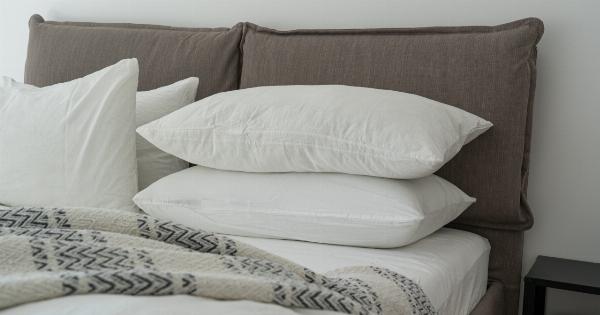Stress is a part of life and can affect anyone, regardless of their age, gender, or profession. However, it’s important to manage stress before it takes a toll on your mental and physical health.
If you’re feeling stressed, anxious, or overwhelmed, there are several natural ways to reduce stress and feel more relaxed. Here are some tips on how to beat stress naturally:.
1. Exercise Regularly
Exercise is one of the most effective ways to reduce stress and improve your mood. When you exercise, your body releases endorphins, which are natural chemicals that boost your mood and reduce stress levels.
Aim to exercise for at least 30 minutes a day, five days a week. You can choose any type of physical activity that you enjoy, such as running, walking, swimming, yoga, or cycling.
2. Practice Mindfulness Meditation
Mindfulness meditation is a form of meditation that helps you focus on the present moment and reduce stress and anxiety. This type of meditation involves sitting comfortably and focusing on your breath.
You can do this meditation for as little as 5-10 minutes a day to feel the benefits.
3. Get Enough Sleep
Getting enough sleep is crucial to reducing stress and improving your overall health. Make sure you get 7-9 hours of sleep each night.
To improve the quality of your sleep, avoid caffeine and alcohol in the hours leading up to bedtime, create a relaxing bedtime routine, and keep your sleep environment dark, quiet, and cool.
4. Eat a Healthy and Balanced Diet
Eating a healthy and balanced diet is essential for reducing stress and improving your mood. Include plenty of fruits, vegetables, whole grains, and lean proteins in your diet.
Avoid processed foods, sugary drinks, and foods high in saturated and trans fats. Make sure you drink plenty of water throughout the day to stay hydrated.
5. Practice Deep Breathing Exercises
Deep breathing exercises are another effective way to reduce stress and promote relaxation. Sit comfortably and take deep breaths in through your nose and out through your mouth. Focus on your breath and try to clear your mind of any thoughts or worries.
You can do this exercise for as little as 5 minutes a day to feel the benefits.
6. Keep a Positive Attitude
A positive attitude can help reduce stress and improve your overall well-being. Focus on the good things in your life and try to find the positive in challenging situations.
Practice gratitude by writing down three things you’re grateful for each day. Surround yourself with positive and supportive people who lift you up.
7. Take Breaks and Practice Self-Care
It’s important to take breaks throughout the day and practice self-care. Take a few minutes each day to do something you enjoy, such as reading a book, taking a walk, or listening to music.
Practice self-care by getting a massage, taking a relaxing bath, or doing something else that makes you feel good and relaxed.
8. Connect with Others
Connecting with others is an essential part of reducing stress and improving your overall well-being. Spend time with friends and family members who lift you up and make you feel good.
Join a club or volunteer in your community to meet new people and expand your social circle.
9. Laugh More
Laughter is a powerful tool for reducing stress and improving your mood. Watch a funny movie, read a humorous book, or spend time with friends who make you laugh.
Laughter releases endorphins, which are natural chemicals that make you feel good and reduce stress levels.
10. Seek Professional Help if Needed
If you’re feeling overwhelmed and stressed, it’s important to seek professional help.
Talk to your doctor or a mental health professional who can provide you with tools and resources to manage your stress and improve your overall well-being.






























